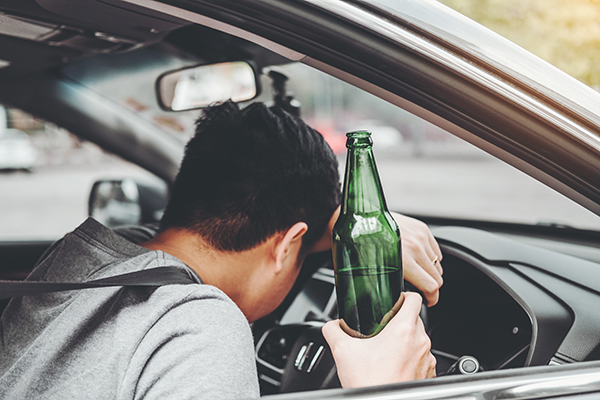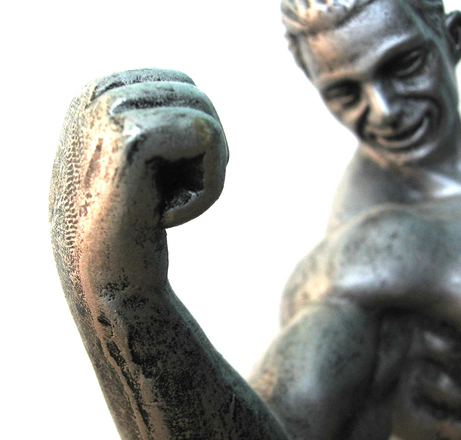The Brain's Response to Opiates
Posted on May 27, 2020
Mind Over Matter Opiates Series
National Institute on Drug Abuse · National Institutes of Health
 If you've ever seen "The Wizard of Oz," then you've seen the poppy plant -- the source of a type of drug called opiates. When Dorothy lies down in a field of poppies, she falls into a deep sleep. No wonder the Latin name of this plant -- Papaver somniferum -- means "the poppy that makes you sleepy."
If you've ever seen "The Wizard of Oz," then you've seen the poppy plant -- the source of a type of drug called opiates. When Dorothy lies down in a field of poppies, she falls into a deep sleep. No wonder the Latin name of this plant -- Papaver somniferum -- means "the poppy that makes you sleepy."
Opiates are made from opium, a white liquid in the poppy plant. They're also referred to as narcotics. Maybe you've heard of drugs called heroin, morphine or codeine. These are examples of opiates.
Opiates can produce a quick, intense feeling of pleasure followed by a sense of well-being and a calm drowsiness. But they can also become an addiction. If someone uses opiates again and again, his or her brain is likely to become dependent on them.
Nerve Cells Experience Addiction & Withdrawal
What happens to make a person and his or her brain become addicted to an opiate? Long term opiate use changes the way nerve cells in the brain work. These cells grow so used to having the opiate around that they actually need it to work normally.
If opiates are taken away from dependent nerve cells, many cells become overactive. Eventually, these cells will work normally again, but in the meantime, they cause a wide range of symptoms in the brain and body. These are known as withdrawal symptoms. Have you ever had the flu? You probably experienced symptoms such as aching, fever, sweating, shaking or chills. These are similar to withdrawal symptoms, but withdrawal symptoms are much worse. Yuck!
How Nerve Cells Respond to Opiates
Within the limbic system, brainstem and spinal cord, there are places on certain nerve cells that recognize opiates. When stimulated by opiates, these sites -- called opiate receptors -- trigger responses in the brain and body.
Scientists have identified three types of opiate receptors: delta, mu and kappa (named after letters in the Greek alphabet: Delta, Mu, Kappa). Each of these receptors is involved in different brain functions. For example, mu is responsible for the pain-relieving effects of the drug morphine.
Opiates act on many places in the brain and nervous system.
A. The limbic system controls emotions. Opiates change the limbic system to produce increased feelings of pleasure, relaxation and contentment.
B. The brainstem controls things your body does automatically, like breathing or coughinOpiates can act on the brainstem to stop coughing or slow breathing.
C. The spinal cord transmits pain signals from the body. By acting here, opiates block pain messages and allow people to bear even serious injuries.
Opiates Stop Pain
Did you know that some opiates can have important medical uses? They're powerful pain killers, and doctors sometimes prescribe them to control severe diarrhea. If you look on a cough medicine label, you might find that codeine is one of the ingredients.
Surprising Facts
Your brain produces its own versions of opiates, called endogenous opioids. These chemicals act just like opiates, binding to opiate receptors.
Endogenous opioids are your body's way of controlling pain. If you've ever felt pleasantly relaxed after exercising a lot, that feeling was probably caused by the release of this natural chemical in your brain.
If you are looking for treatment programs addressing Opiate addiction, The Substance Abuse and Mental Health Services Administration (SAMHSA) can help you find centers.
For printed copies of this publication contact:
National Clearinghouse for Alcohol and Drug Information
P.O. Box 2345
Rockville, MD 20847
1-800-729-6686
"Mind Over Matter" is produced by the National Institute on Drug Abuse, National Institutes of Health. These materials are in the public domain and may be reproduced without permission. Citation of the source is appreciated. NIH Publication No. 97-3856.
Overdose deaths outnumber COVID-19 Deaths, Victoria, BC.
ODs surge: The pandemic is causing an additional publich-health crisis in Canada: as spike in the number of overdoses. Border closures have reduced the amount of illicit drugs entering the country, so dealers are bulking up their drugs with toxic substances, while users who have to wait a long time for a fix tend to overconsume. Many drug treatment facilities are closed, and those that remain open require patients to isolate before being admitted; some patients OD in isolation. About 800 people have suffered fatal overdosed in British Columbia so far this year—about four times as many as have died of Covid-a9 in the province. Some doctors and police chiefs, as well as family members of those who have overdosed, are calling on the government to decriminalize opioids to curb the OD epidemic.
From “The World at a glance...,” THE WEEK magazine, August 28, 2020 (SUBSCRIBE AND SAVE)
SEE ALSO:
More How Drugs and Alcohol Affect the Brain and Body
Sexual Bias Articles
Race Relations Articles
Mental Health Articles
WA. Counselor Directory: find a therapist near you
How helpful is this web page to you?
(and how can we can improve this page for you?)
not helpful
very helpful
Other Articles
Drunk Driving and DUI:
The Legal and Emotional Consequences
Alcohol/Drug Treatment in Jail Now retired after seventeen years of chemical dependency counseling for Seattle King County Public Health, I approach the topic of drunk driving from the perspective o... read more
How Fentanyl Affects Your Body and Your Brain
August 16, 2018, Seattle Times: Center for Disease Control and Prevention (CDC) reports 7,200 drug overdose deaths in 2017, Up more than 6,000 over the previous 12-month period. The increase driven by... read more
The Brain's Response to Inhalants
Hair spray, gasoline, spray paint, butane gas, and others (huffer, huffing, sniffing)" Adapted from the Mind Over Matter Inhalant Series by the National Institute on Drug Abuse ·... read more
The Brain's Response to Steroids
Steroids --anabolic steroid abuse has been associated with a wide range of adverse side effects ranging from some that are physically unattractive, such as acne and breast development in men, to others that... read more





